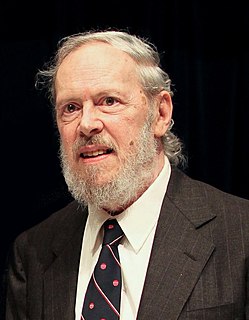A Quote by Timothy Leary
The brain is a robot-computer perfectly designed to fabricate any reality we program it to construct.
Related Quotes
In the smart home of the future, there should be a robot designed to talk to you. With enough display technology, connectivity, and voice recognition, this human-interface robot or head-of-household robot will serve as a portal to the digital domain. It becomes your interface to your robot-enabled home.
The analogy between the mind and a computer fails for many reasons. The brain is constructed by principles that assure diversity and degeneracy. Unlike a computer, it has no replicative memory. It is historical and value driven. It forms categories by internal criteria and by constraints acting at many scales, not by means of a syntactically constructed program. The world with which the brain interacts is not unequivocally made up of classical categories.
We know only what we do, what we make, what we construct; and all that we make, all that we construct, are realities. I call them images, not in Plato's sense (namely that they are only reflections of reality), but I hold that these images are the reality itself and that there is no reality beyond this reality except when in our creative process we change the images: then we have created new realities.





































